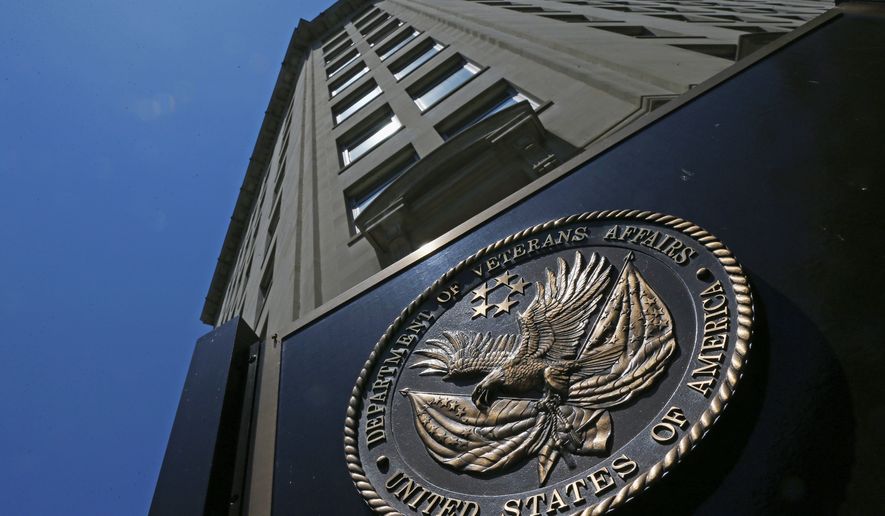Two VA executives accused of arranging moves to new jobs and wrongly collecting hundreds of thousands of dollars along the way refused to answer questions about their behavior Monday, pleading their Fifth Amendment right against self-incrimination in testimony to Congress.
Diana Rubens, who collected more than $274,000 in moving to the troubled benefits office in Philadelphia, and Kimberly Graves, who collected nearly $130,000 as she moved to the St. Paul, Minn., regional benefits office, were excused after about half an hour of refusals to answer questions. But House Veterans Affairs Chairman Jeff Miller warned them the committee will review whether their Fifth Amendment asserts were legal, and he said they may be forced to come back.
In taut testimony, Antoine Waller, said he did feel “pressure” to leave the St. Paul office and take a lesser position in Baltimore to make room for Ms. Graves.
“My decision to go to Baltimore came with pressure to accept the assignment,” he said, though he added, “I did in fact accept the assignment and went into the opportunity with all of the passion for veterans that I have.”
But Robert McKenrick, who was bumped from Philadelphia to Los Angeles, making room for Ms. Rubens, downplayed the forces behind his move, saying he was reluctant at first, but once the VA ordered him to relocate he accepted the assignment.
“I do not feel like I was pressured in this instance,” he said.
And Danny Pummill, the department’s principal deputy undersecretary for benefits, said he stands by the decisions to remove Ms. McKenrick and Mr. Waller and replace them with Ms. Rubens and Ms. Graves.
“If I could back in time, I still would’ve made all the moves, yes,” Mr. Pummill said.
Still, he said, both Ms. Rubens and Ms. Graves were given administrative punishment a few days ago. He declined to tell the committee what penalties were recommended because both employees are still within the appeal period.
The testimony Monday was at odds with the findings of the inspector general.
In the case of Ms. Graves, investigators said she called Mr. Waller and asked if he would be willing to move to Philadelphia — then after he expressed interest she said Philadelphia was no longer available and said he should take Baltimore. He balked at that, but Ms. Graves’ office submitted his name for Baltimore anyway, and told him it would be bad if he tried to stop it.
“I believe the process has to be tightened up so it does not repeat,” said Linda Halliday, the inspector general. “The one thing that tends to make the biggest difference is holding people accountable for their actions.”
Relocation costs are supposed to only paid to employees whose transfer is ordered by the agency, and who are the best qualified applicants for a job that was difficult to fill. But the Philadelphia position had more than 100 applicants, signaling it was not difficult to fill.
Both Ms. Graves and Ms. Rubens not only received relocation bonuses, but also kept their higher salaries even though the jobs they moved to should have earned less. The VA said it did not have the authority to reduce their salaries.
Rep. Ann McLane Kuster, New Hampshire Democrat, said Congress should consider changing the law to allow the department to lower salaries when high-level executives move to lower positions.
The inspector general’s report said the VA often used relocation bonuses and salary increases to induce transfers.
All of the VA employees appeared in response to a subpoena from the committee.
Former Undersecretary for the Veteran Benefits Administration Allison Hickey, who was in charge at the time of the moves, had been invited to appear, but declined.
She was not subpoenaed because she is no longer with the department, and Mr. Pummill attempted to answer questions instead.
Ms. Halliday, the inspector general, has referred her findings to the Justice Department for possible criminal prosecution. Officials there have not yet decided whether to pursue the case.
• Anjali Shastry can be reached at ashastry@washingtontimes.com.




Please read our comment policy before commenting.